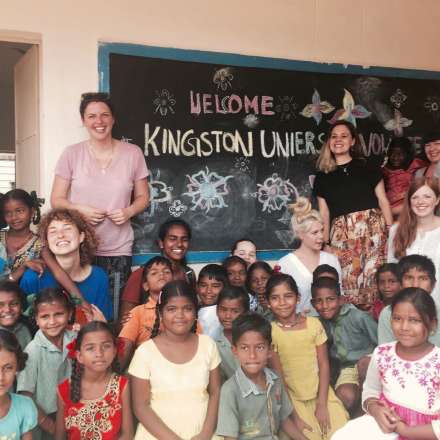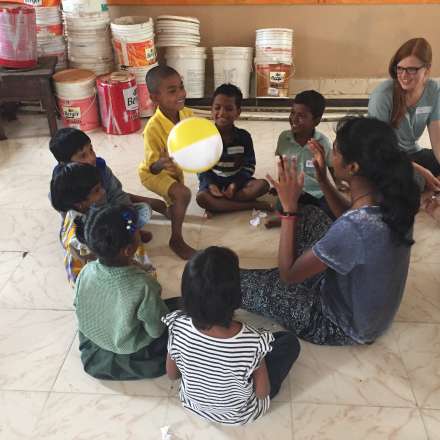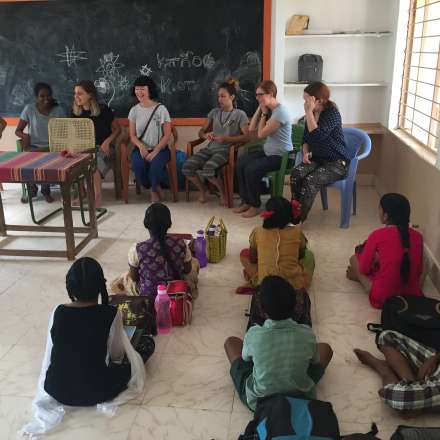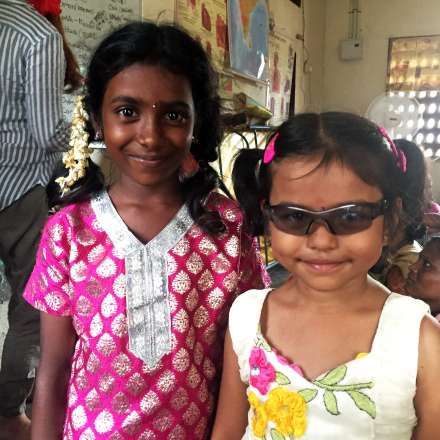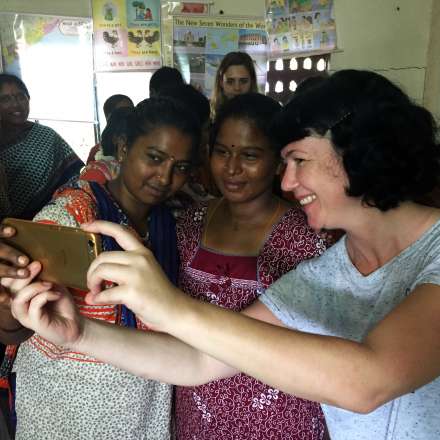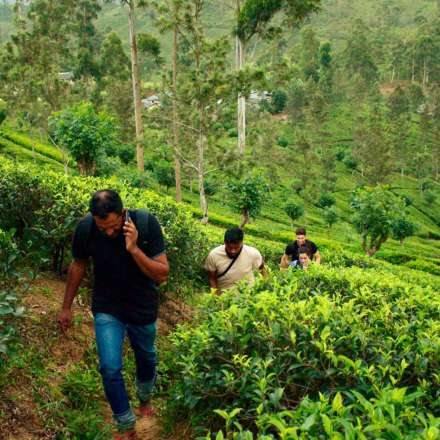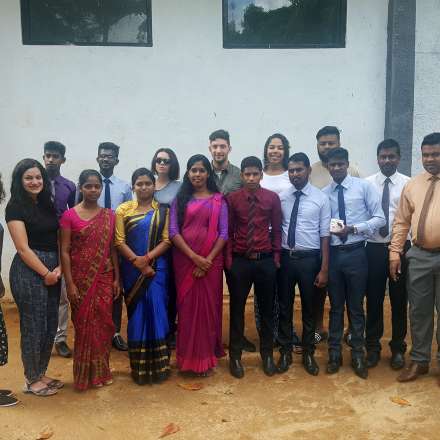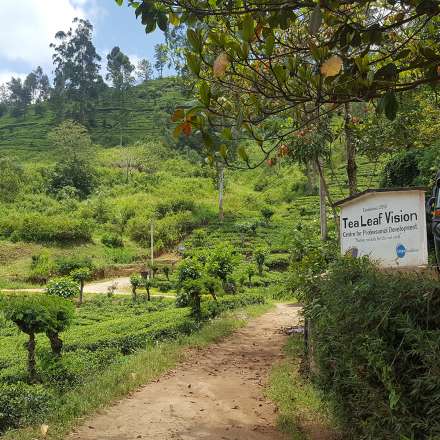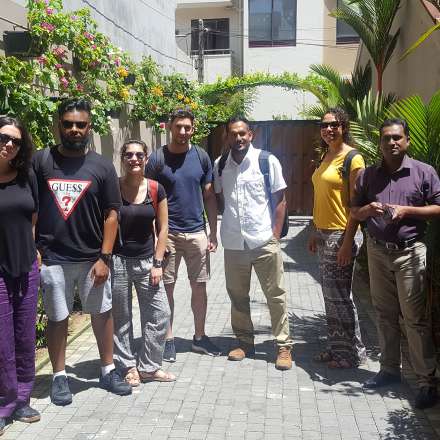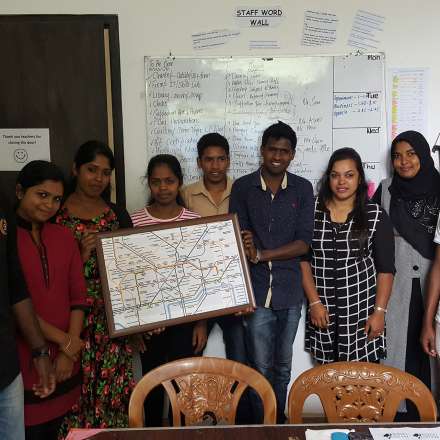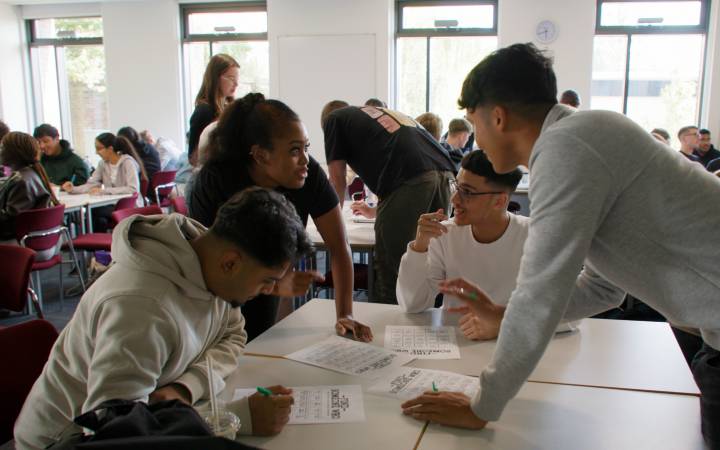Kingston University student volunteers make a difference with Lebara Foundation in community schools in India and Sri Lanka
Posted Monday 23 October 2017
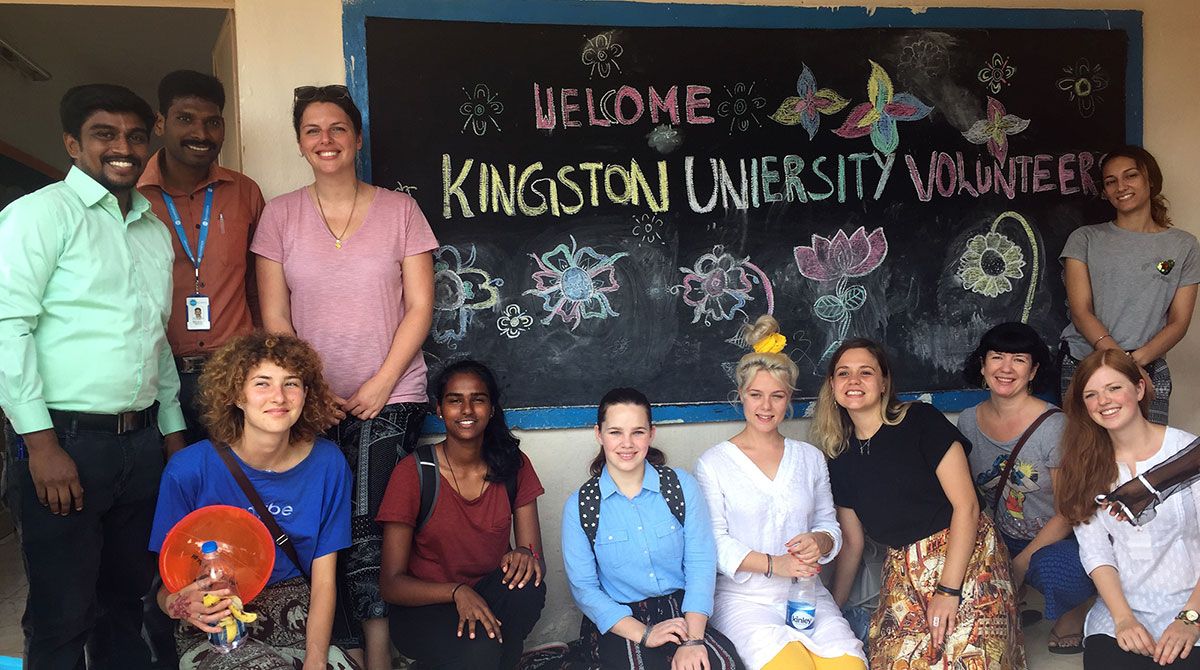
Kingston University staff and students travelled to the slums of India and tea plantations of Sri Lanka to work amongst local communities as part of an annual cultural exchange programme run by the Lebara Foundation.
The once-in-a-life experience saw a group of seven students travel to Tirupathi in southern India and four to Maskeliya, Sri Lanka to teach English and volunteer in schools that are providing some of the country's most disadvantaged children and young adults with education and developmental support.
The India team travelled to Tirupathi to work in the Venugopalapurum Slum, teaching English to around 40 children - covering subjects such as food, weather and health - while the sessions with the mothers often resulted in a cultural exchange of arts and crafts or favourite recipes. The group then moved to the Indra Nager Slum in Tirupathi for the final week of the trip to teach children and mothers from the neighbouring community.
Criminology and sociology student Jess De Burgh said visiting the slums had been an emotional experience but also an unique opportunity for both sides to experience a different culture. "One of the biggest lessons I took away from the trip was how privileged we are in the United Kingdom, with access to clean water and medical services, education and empowerment especially for women," she said.
"The trip was an eye-opening experience for us, but also for the kids - I think it's important for them to meet people from other cultures and hopefully it inspires them to explore outside their comfort zone and outside of India."
The group's trip to Sri Lanka marked Kingston University's second visit to the country with the Lebara Foundation, which was set up by Kingston University engineering alumnus Yoganathan Ratheesan to provide food and nutrition, health services, safe drinking water and education for displaced and vulnerable communities around the world.
The staff and students worked with a local community in the lush green tea valleys of Maskeliya in the Central Province, travelling up to three hours to get to classes each day at the school - which was established in 2009 in partnership with the Tea Leaf Trust, a non-profit organisation that provides free education families in the area.
Michael Khachatour, a Kingston University widening participation officer who accompanied the students on the trip, said the team were given a rare insight into the positive impact the school had on the local community and felt fortunate to be given the chance to work alongside the teachers there.
"The incredible work of the teachers and schooling community means most of the students are able to speak English fluently when they graduate and have a real chance of going to university or getting a job outside of the tea plantations," he explained. "I felt extremely privileged to have been able to spend time getting to know more about such a transformational project."
This is the fourth year that students and staff from Kingston University have had the opportunity to go to India to take part in the projects run by the Lebara Foundation, which was set up in 2008 as the charitable arm of global telecommmunications company Lebara Group.
The scheme is run in partnership with the Union of Kingston Students' Volunteering Department and the University's Study Abroad International Learning (SAIL) Office.
Lebara Foundation director Gopakumar Nair said that, despite the relatively short period of time the volunteers spend working within the local communities, the strong connections they form are felt on both sides.
"The impact on both the volunteers and school children is incredible - even though it's conducted over a short time, each year I see a huge bond develop between the children and Kingston University students and staff," he said. "The students are genuine in their efforts to help the children and they become a family very quickly."
- Find out more about volunteering at Kingston University.
- Read more about the Lebara Foundation
Contact us
General enquiries:
Journalists only:
- Communications team
Tel: +44 (0)20 8417 3034
Email us
